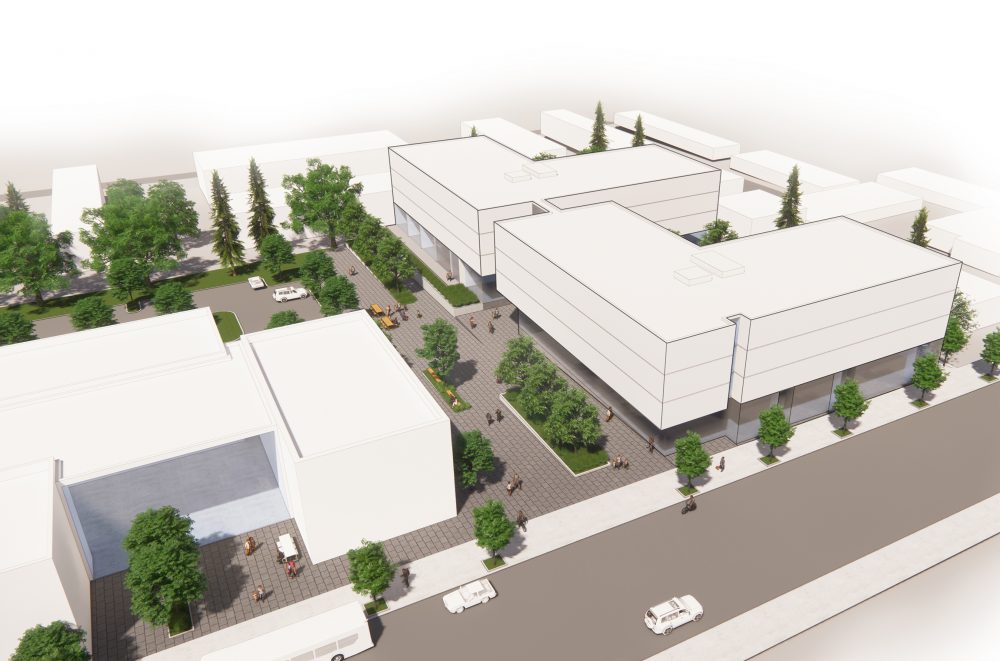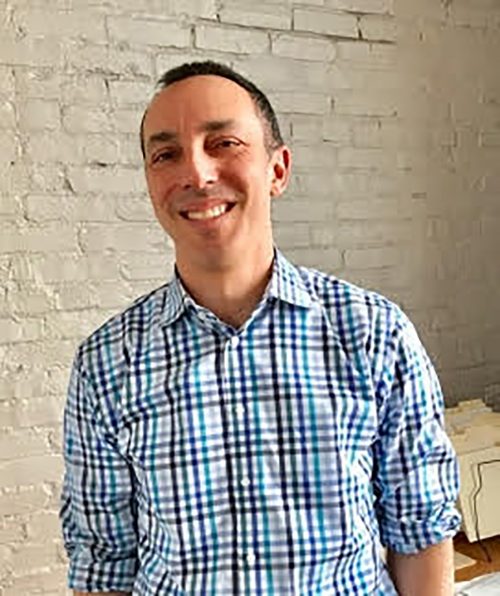This content was published: June 12, 2020. Phone numbers, email addresses, and other information may have changed.
PCC plans its first affordable housing project at Portland Metro Workforce Training Center
Submitted Article & Photos.
The high cost of rents in Portland is a challenge for many residents, including students at Portland Community College. PCC is working to address this issue by partnering with Home Forward to create affordable housing as part of the redevelopment of the Portland Metro Workforce Training Center (PMWTC) in Northeast Portland.
Home Forward, the independent government agency that is the largest provider of affordable housing in Oregon, is leasing about one acre of the PCC property to build and operate the housing units. The agency’s director of development and community revitalization, Jonathan Trutt, discussed what the community can expect from the project.
What is Home Forward’s partnership with PCC?
Jonathan Trutt: Home Forward and PCC share similar missions and serve similar populations. The organizations began talking in early 2019 about how we might collaborate. We ultimately decided to partner to redevelop the PMWTC site to provide job training, affordable housing, community services and retail space at a single location.
What does Home Forward hope to achieve?
Trutt: Our goal is to leverage both organizations’ strengths and provide job training and affordable housing at a single site. We are excited about the convenient access that the residents of PMWTC’s affordable housing will have to job training.
What opportunities does this project provide Home Forward?
Trutt: This is a great opportunity to build deeper connections between our organizations and better align the workforce development and affordable housing systems. What we do here could be replicable elsewhere in the region with other affordable housing providers.
What are some of the challenges you see for Home Forward with this project?
Trutt: Community college students often need affordable housing. Unfortunately, there are complicated rules that frequently prevent full-time students from living alone in affordable housing. We plan to respond to this challenge by creating opportunities for roommate-friendly housing. We also are looking to create many larger units (both two-bedroom and three-bedroom) and are mindful of what that will mean in terms of providing appropriate outdoor space for kids. This challenge can be solved through thoughtful design, and we’re delighted by the early thinking we’ve seen from Hacker Architects.
When will work start and what is the mix of units?
Trutt: We plan to break ground in early 2023. We are building a total of 80 to 100 dwellings, ranging in size from studios to three-bedrooms.
How will the rents be determined?
Trutt: Our funding sources will set the limits at 60 percent of the area’s median income, and we’ll strive to keep the rents lower than maximum allowed levels.
Who can qualify for these units?
Trutt: Anyone from the general public who passes our screening criteria and, hopefully, many clients of PMWTC’s programs. We are also planning to reserve some units for youth aging out of foster care, as well as families in need of stable housing to reunite with their children or avoid having them placed in foster care.
Will there be opportunities for community input into this project?
Trutt: Absolutely! Cully and 42nd Avenue both have strong community organizing efforts and we want to ensure that our development includes and complements those efforts. We’ve had some early conversations with Living Cully and the Metropolitan Alliance for Workforce Equity. Now that our design is beginning in earnest, we’re eager to continue those discussions and turn them towards tangible actions and outcomes.
What are you learning about PCC during this process?
Trutt: Our current connections in terms of workforce development already run deeper than we initially understood. We are also discovering the amazingly diverse number of programs and efforts PCC has. At both an organizational and staff level, the college is very ambitious about making a difference in people’s lives and advancing racial equity.
What is your team most excited about for this project?
Trutt: It’s exciting to collaborate and focus both organizations’ strengths and expertise towards a common goal. It’s exciting to have the chance to bring new life and activity to that crucial corner and to weave the neighborhood’s goals into the overall project’s design and programming.
Thanks Jonathan!




I’m interested in learning more about this project